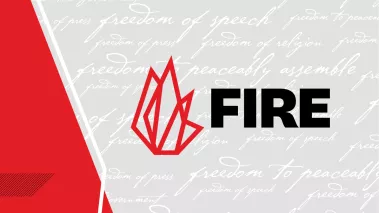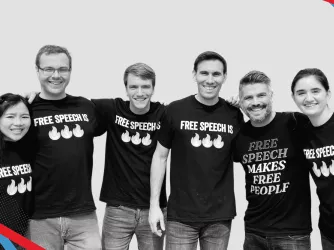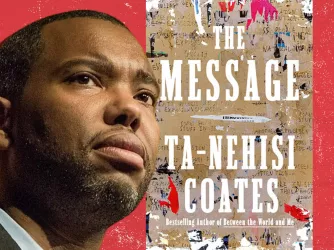Table of Contents
In ‘CLS v. Martinez’ Ruling, Sharply Divided Supreme Court Undermines Freedom of Association on Campus

WASHINGTON, June 28, 2010—In a blow to freedom of association and religious liberty on campus, a sharply divided U.S. Supreme Court ruled today that a public university may require its student organizations to admit any student as a voting member or officer, regardless of whether that student openly disagrees with or is even hostile to the group's fundamental beliefs.
"FIRE is deeply disappointed by the Supreme Court's decision in Christian Legal Society v. Martinez. For all of the reasons stated in our brief, we believe the practical effect of this case will be the derecognition of devoutly religious groups—especially evangelical Christian groups. This is a loss for diversity and pluralism on campus, not a win," said FIRE President Greg Lukianoff. "FIRE will continue to fight for the rights of expressive campus organizations to form around shared beliefs and for the principle that the College Democrats have the right to be Democrats, the College Atheists have the right to be atheists, and the College Christians have the right to be Christians."
In a 5-4 decision, the Court ruled that the University of California Hastings College of the Law did not violate the First Amendment rights of the Christian Legal Society (CLS) when it denied the group official recognition because of the group's requirement that its voting members and leaders sign a "Statement of Faith" expressing belief in CLS' particular religious worldview. By denying CLS recognition, the group is stripped of access to university benefits such as meeting space, e-mail listservs, literature distribution tables, and student fee funding. The majority opinion in Christian Legal Society v. Martinez, authored by Justice Ruth Bader Ginsburg, held that Hastings' policy is constitutional. The Foundation for Individual Rights in Education (FIRE) filed a friend-of-the-court brief on behalf of CLS in February.
In affirming the United States Court of Appeals for the Ninth Circuit's 2009 ruling on behalf of Hastings, the Supreme Court limited its holding to the constitutionality of Hastings' "accept all comers" policy. That policy mandates that recognized student groups must accept all students into membership and leadership positions, regardless of the beliefs they may hold. The Court deemed the policy constitutional, understanding that in application the policy requires, for example, the Hastings Republicans to admit members of the Hastings Democratic Caucus as voting members and even as leaders in order to gain official university recognition.
Writing for the majority, Justice Ginsburg dismissed the fact that the policy allows students hostile to a group's core tenets to dilute or disrupt the communication of the group's preferred message, or even to take over the group altogether, claiming that these concerns are "more hypothetical than real." However, FIRE's brief, filed in conjunction with national student organization Students For Liberty, identified examples of exactly this motivation among students hostile to unpopular or minority viewpoints on campus.
The majority opinion also insists that denying recognition to belief-based groups like CLS is constitutionally permissible in part because groups denied recognition may nevertheless avail themselves of private means of communication, such as social networking sites, to reach fellow students. However, in so holding, the majority demonstrates a disturbing comfort with consigning belief-based student groups to second-class status on campus. The Court's ruling relegates religious student groups like CLS to the sidelines of campus life because of their refusal to compromise their beliefs, and forces other belief-based student groups to choose between offering hostile students voting rights or operating in the shadows of campus life.
"Hastings' 'accept all comers' policy casts student groups like CLS off campus and diminishes the robust debate and the diversity of viewpoints that are supposed to be hallmarks of our public universities," said FIRE Vice President Robert Shibley. "Forcing student groups to lie about their core beliefs in order to participate as equals in the life of their university is intolerant and trades real diversity for a majority-approved homogeneity."
While troubling in many regards, the scope of today's opinion is narrow in important respects. The Court's holding is limited only to the constitutionality of "accept all comers" policies like the one at issue here, and the Court acknowledges that such policies may not in fact be advisable or desirable for maintaining robust debate on public college campuses.
The Court's majority opinion does not consider the constitutionality of non-discrimination policies as applied to belief-based student groups. Instead, the Court holds that public universities like Hastings may only deny the right to freedom of expressive association to religious student groups like CLS if they deny this freedom to all groups. Finally, the Court has remanded the case to the Ninth Circuit to determine whether Hastings' "accept all comers" policy was adopted as a pretextual means of censoring CLS or whether the policy has been selectively enforced against CLS.
"In his dissent, Justice Samuel Alito observed that the majority has provided public universities with 'a handy weapon for suppressing the speech of unpopular groups.' FIRE agrees with Justice Alito's assessment of the likely impact of today's misguided ruling, as our experience demonstrates that censorship on campus is pernicious and widespread," said Will Creeley, FIRE's Director of Legal and Public Advocacy. "In light of the danger presented by today's ruling, FIRE will redouble its efforts to defend the right of students of all viewpoints to join together with others of like mind in pursuit of their own truths."
FIRE is a nonprofit educational foundation that unites civil rights and civil liberties leaders, scholars, journalists, and public intellectuals from across the political and ideological spectrum on behalf of individual rights, due process, freedom of expression, academic freedom, freedom of association, and rights of conscience at our nation's colleges and universities. FIRE's efforts to preserve liberty on campuses across America can be viewed at thefire.org.
CONTACT:
Will Creeley, Director of Legal and Public Advocacy, FIRE: 212-582-3191; will@thefire.org
Recent Articles
FIRE’s award-winning Newsdesk covers the free speech news you need to stay informed.

How to survive Thanksgiving

Right, left, and in-between: Can we bring our differences to the table?

FIRE is the proud home for those who defend free speech
